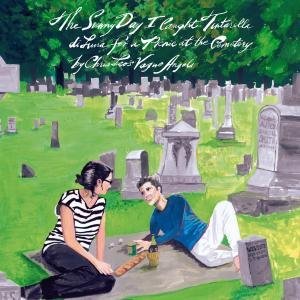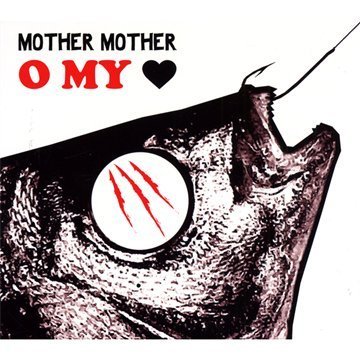This EP from Swedish husband and wife duo Wildbirds & Peacedrums follows swiftly on the heels of its sister Retina, the pair of which will be released as a double album later this year. A neat format concept, however, cannot hide the fact that Iris represents a palpable buffing out of existence of that ragged, rootsy experimentalism that made last year’s The Snake such an engaging listen.
In lieu of this we get a gospel revival, bluesy articulations of private pain, and a much tighter and more pallid rhythm section. From the four-four plod of ‘The Wave’, to the four-four plod-stomp of ‘The Drop’, Andreas Werliin’s drums have become strangely sterile from the waist down. The percussive relationship with the vocals, that was once excitingly confused and shifting, has now settled into a comfortable middle-aged spacing. The drums recede and hold the ground for the vocals. Everything now is much more conservatively centred. Part of what made The Snake surprising was the intricate balance of stop-motion flowering and fragile webs of songs that stretched to breaking point without falling apart. The experimentalism, the nods to The Homosexuals, The Raincoats and Bjork have been shouldered in favour of a more concise template, a slower-burn, song-writing as considered formal exercise rather than impressionistic splash.
More prominent in the sound is the steel drum. The Knife had it as queasy pantomime, jj as postcard tropicalia, and now a further Swedish appropriation has it as rolling cantankerous percussion and sustained mournful pools of sound. Reminiscent of Cark Orff’s 'Gassenhauer' from Schulwerk, as it appears in Badlands and True Romance, a drug dealer’s sofa blooming with shotgun holes, where stained feathers soften the murder. It rings out as a peal of bells across the words “sunrise” and “dawn” in ‘The Course’, perhaps the highlight of the album in its sustained build and measured mood. In short: the steelpans cover a lot of ground.
Remaining in the sound is that signature bass drone, layered with atonal harmonics, the humming of the substation, like the most gentle of malfunctions. But while this makes a welcome return on 'The Waves', elsewhere it is stripped of its menacing beauty and rendered a low end support for Mariam Wallentin’s vocals. At its best her voice sounds like I imagine a mermaid’s might. Not Ariel or (God forbid) Cher, but something more gritty, with straggly wet hair and an otherworldly affinity with the textures of stone and reeds. Woman as earth-spirit – a hoary old connection, but here freshened with the hopelessness of being painted elemental. Wallentin’s vocal style has certainly matured, it’s a voice with more control and dexterity, soulful and powerful. But this has come at the cost of a vocal identity, mannered, more self-regarding, far too careful for its own good. At its worst it sounds like Natasha Khan’s Cat Power impressions.
Reviewing this as I am from a narrowboat on a welsh canal, I can’t help but notice that watery metaphors abound. Lakes, rivers, water to her waist, all lyrical reflections of the meandering and babbling brook of the song structures. The occasional bywash that shifts the song off-centre, only for the craft to dexterously right itself. The ominous sound of an approaching weir that never appears. Like life on the canal, there are no great surprises, no compelling dramas. What dominates is a polite and mannered civility, that makes you cry out for a bit of a splash. Despite the heightened sense of subtlety, this is an EP that is waving not drowning.
-
6Daniel B. Yates's Score























